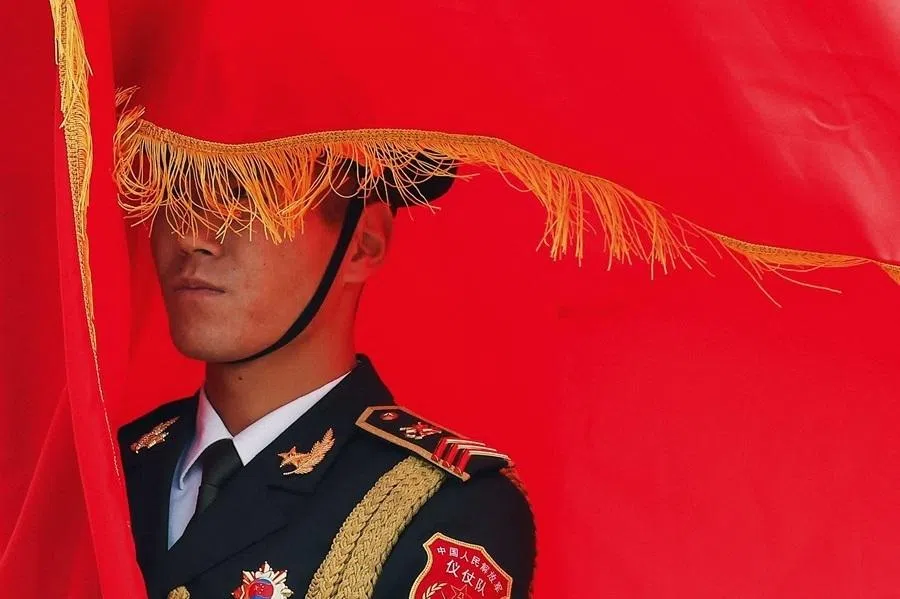On the wrong side of geography: Why is India tolerating Putin's Ukraine gambit?
ISAS academic Yogesh Joshi notes India's predicament of being unable to do as its Quad partners would like in voicing stronger objections to Russian actions in Ukraine. Historically, India has been dependent on Russia for military equipment and support, but more significantly, it is straitjacketed by the threat of China in its own backyard. This is motivation enough for it to do its level best not to send Russia into China's arms.
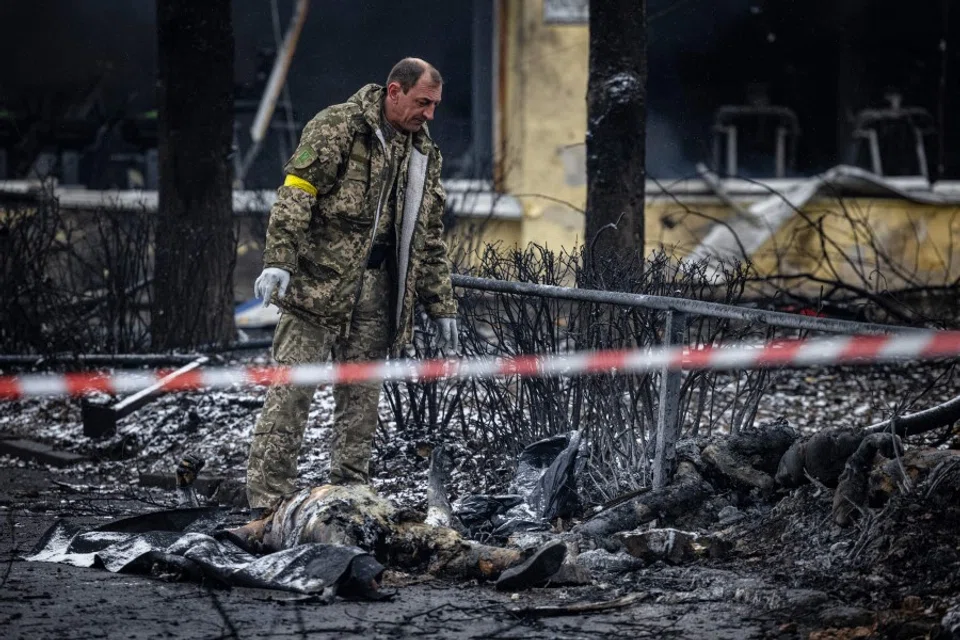
The Russian invasion of Ukraine has forced India into a tight corner.
India's three consecutive abstentions - two at the UN Security Council and one at the UN Human Rights Council - regarding condemning Putin's gambit have created significant heartburn in the West. India's silence, as the director of US Council of Foreign Affairs Richard Haas, argued, "highlights that it remains unprepared to step up to major power responsibilities or be a dependable partner".
The official US position was less derogatory. State Department spokesman Ned Price said that the US has a relationship with India that "stands on its own merits" and that bilateral relations have not been adversely impacted by tensions with Russia.
India's abstentions come as a surprise to Western audiences because even after becoming the world's largest democracy, India has declined to uphold the liberal democratic order and the basic tenets of international law concerning respect for territorial integrity and sovereignty.
New Delhi not only stands accused of dubious morality but is also considered to be pursuing a shortsighted foreign policy. Engaged in a territorial dispute with China and an ongoing military crisis in the high Himalayas, New Delhi's silence creates a serious wedge between itself and its major allies in the Indo-Pacific.
For the West, India is on the wrong side of history, both materially and morally. New Delhi, however, believes that it is simply on the wrong side of geography.
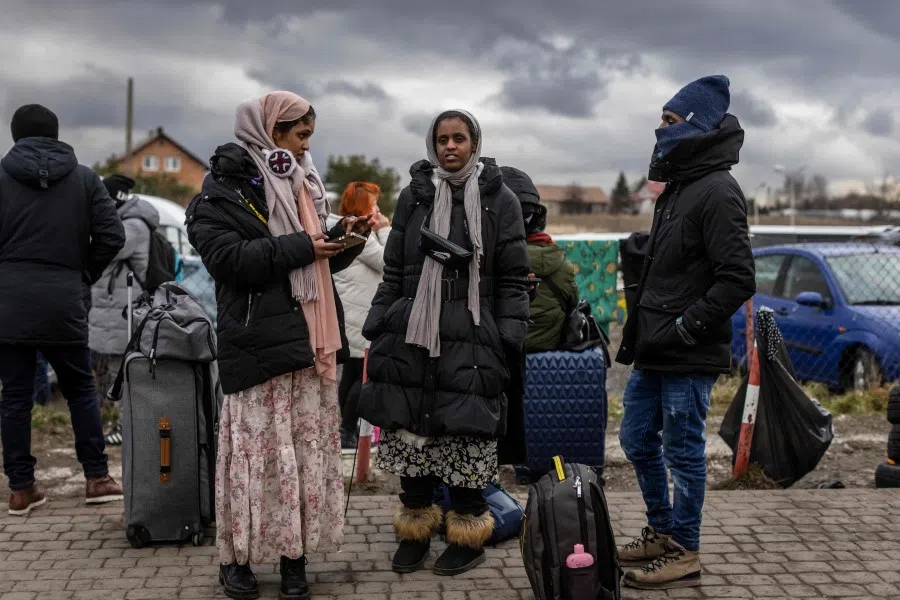
In theory, India can afford to have a stiffer spine
For the West, India is on the wrong side of history, both materially and morally. New Delhi, however, believes that it is simply on the wrong side of geography.
For one, India's primary concern is China and the Indo-Pacific; what happens in Europe is marginal to its fundamental interests. This geographic disassociation is compounded by Russia being the principal instigator of the current crisis, on which India is heavily dependent for its military supplies.
India has diversified its military imports by sourcing equipment from Western vendors such as the US, Israel and France in the last two decades. However, the legacy of India's Cold War dependence on Moscow for its military needs continues apace, with almost 86% of Indian military equipment sourced from Russia.
Moscow is also India's preferred source for advanced military technology and weaponry. Russian assistance has been vital in India's nuclear submarine programme and the development of the BrahMos cruise missile. Moreover, the Russian S-400 air defence system is critical for India in future contests with China and Pakistan.
Heavily isolated, crossing Putin may fundamentally upset India's military readiness, especially when confronting a potent and aggressive adversary on its northern frontier.
India's defence dollars have been vital for Moscow's military-industrial complex... the hurt of severing military relationships will be mutual and, in the environment of Western sanctions, even stinging for Russia.
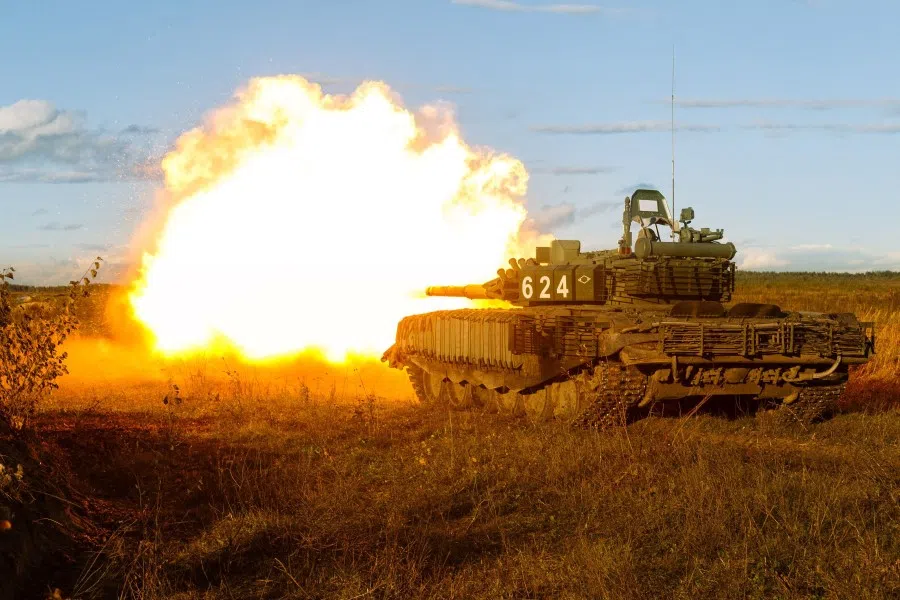
Military dependence, however, is only part of the puzzle. Despite obvious repercussions, New Delhi can take a stronger position vis-à-vis Moscow.
India's defence dollars have been vital for Moscow's military-industrial complex. Therefore, the hurt of severing military relationships will be mutual and, in the environment of Western sanctions, even stinging for Russia. New Delhi can also bargain for greater military assistance from the West as it decouples militarily from Russia.
Even with the ongoing Chinese threat, the Indian military is not a pushover, especially in the rugged terrain of the high Himalayas. Lastly, but most importantly, India is a nuclear power. Major territorial revisions in South Asia are impossible because of the long shadow of nuclear weapons.
In other words, India can take some level of punishment from Russia for its diplomatic opposition to the Ukrainian war.
Public neutrality notwithstanding, New Delhi must be far more emphatic in its private conversations with Moscow. Even in January 1980, when Soviet intervention in Afghanistan was discussed at the UN, New Delhi refused to condemn its Soviet partners openly. Yet Indian Prime Minister Indira Gandhi was vehement in her private disapproval.
That said, India's statements at the UN have increasingly become more critical of Russia in the last six days after the military invasion, with Prime Minister Narendra Modi even asking Putin to cease military operations during a telephonic conversation.
The growing Sino-Russian entente has already created deep consternation within New Delhi, which it attributes partly to vicious domestic politics in the US and partly to Putin's constant bravado.
The threat of China in its own backyard
However, the element of geography is critical in understanding India's reluctance to embrace Western condemnation of Moscow openly. Unlike all Indo-Pacific democracies, only India shares a border with China. It is also the only significant power in the region embroiled in a territorial conflict with Beijing and without a committed ally. The geographical nature of the Chinese threat stands highly compounded if Moscow becomes a junior partner or enters an alliance relationship with Beijing.
First, it would engender a powerful bloc of Eurasia's continental authoritarian powers, which Indo-Pacific's maritime democracies will find extremely difficult to balance. The growing Sino-Russian entente has already created deep consternation within New Delhi, which it attributes partly to vicious domestic politics in the US and partly to Putin's constant bravado. Whatever be the cause, the consequences of tight alignment between Russia and China are not lost on India.
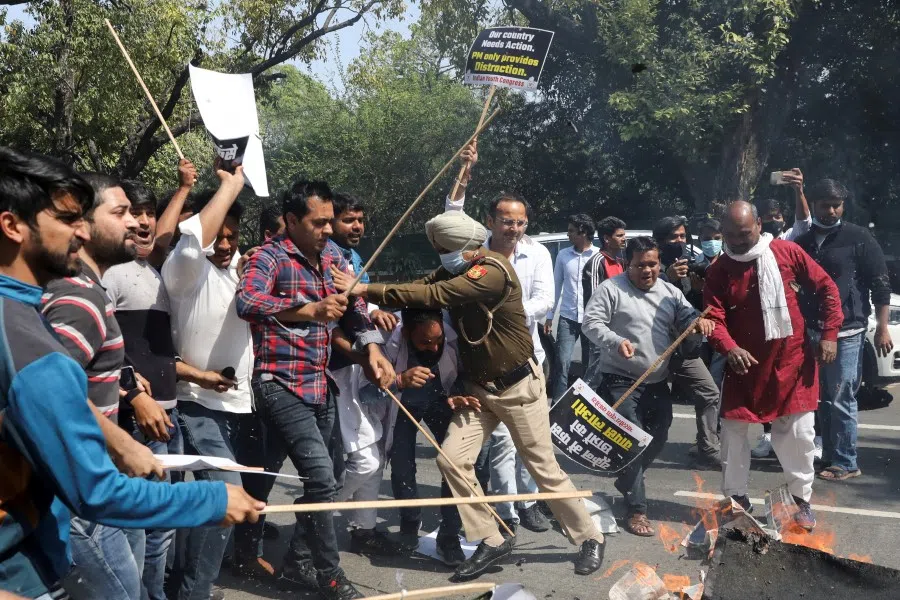
The working principle of India's Cold War balancing strategy was continued Sino-Soviet animosity, if not an open conflict. The Soviet threat prevented China from focusing exclusively on its southern borders. The settlement of the Sino-Russian border dispute has eradicated the erstwhile military diversion.
Still, China has developed new vulnerabilities, such as its dependence on sea lanes of communication (SLOC) in the Indian Ocean. Russian oil and gas can virtually eliminate China's Malacca dilemma or at least attenuate it to a considerable extent. Russian military hardware and technology will also fuel the Chinese military machine, even when Beijing faces technology denials from the West.
An explicit alliance between the two can also pin down the US and its allies in East Asia, with very little energy and resources to help India. For all these reasons central to its geographical condition, India does not want Russia to be forced into China's lap.
Russian interests are indeed independent of New Delhi's wishes. A dismal war and desperate economy may force Putin to embrace China more tightly. Yet, New Delhi believes that even when it cannot stop the shift, skilled diplomacy can help drag the process.
Related: Will China be emboldened by Russia's invasion of Ukraine? | Does Beijing benefit from US-Russia confrontation over Ukraine? | China's tricky position on the Russia-Ukraine war | Can China benefit as a bystander in the Russia-Ukraine crisis? | Russia-Ukraine crisis: Can Russian aggression bring back the former glory of the Soviet Union?



![[Big read] When the Arctic opens, what happens to Singapore?](https://cassette.sphdigital.com.sg/image/thinkchina/da65edebca34645c711c55e83e9877109b3c53847ebb1305573974651df1d13a)

